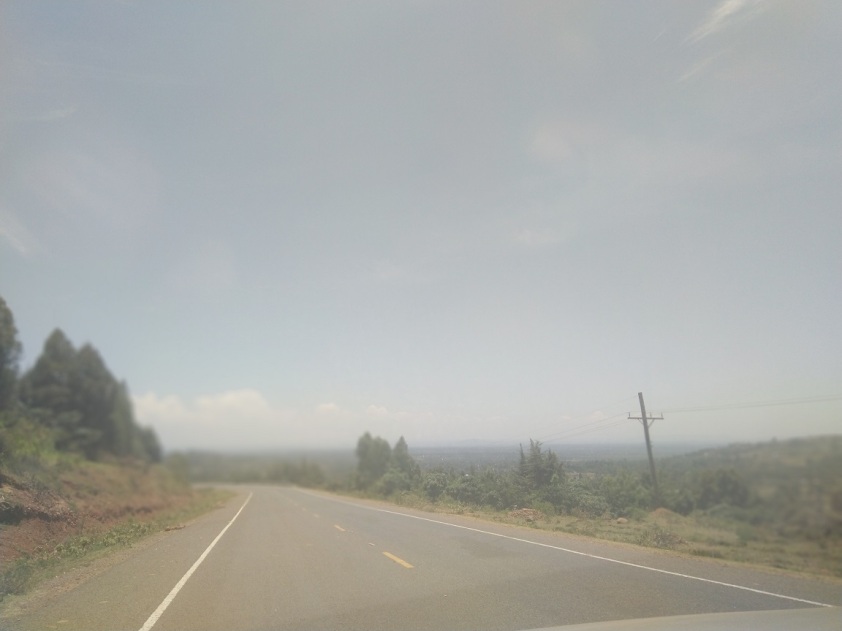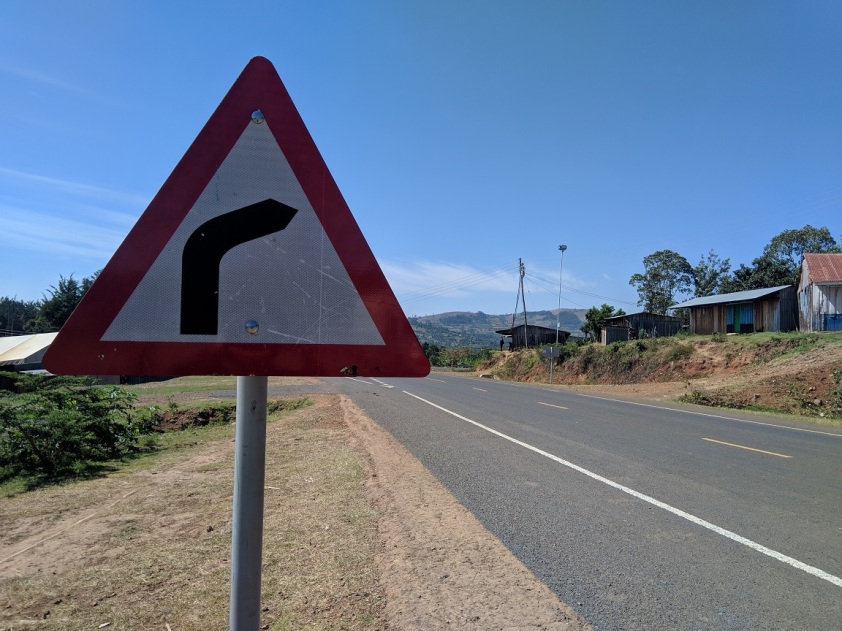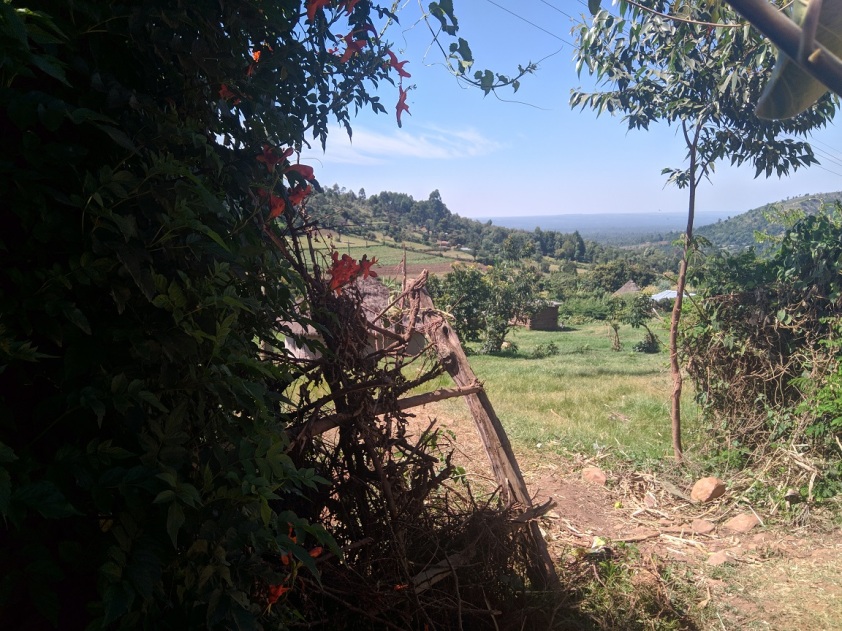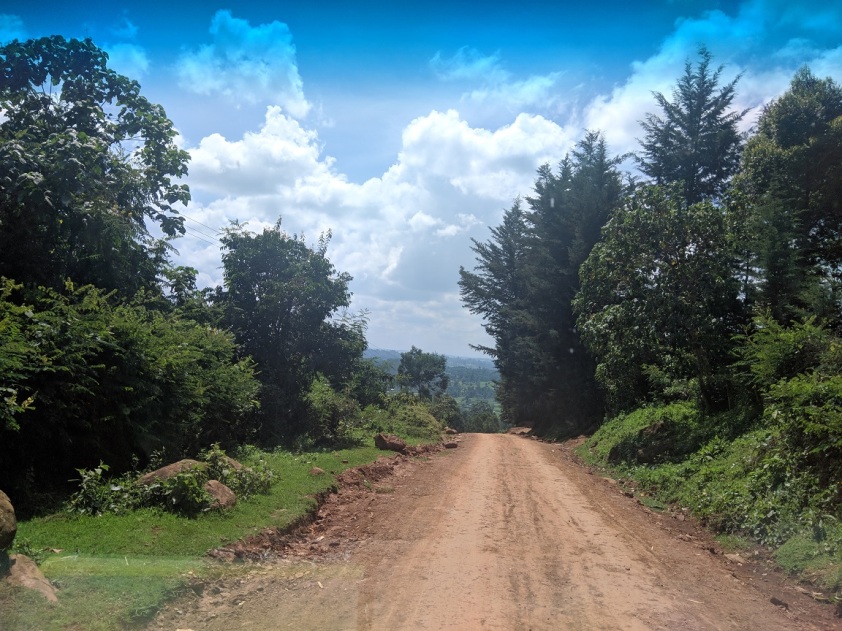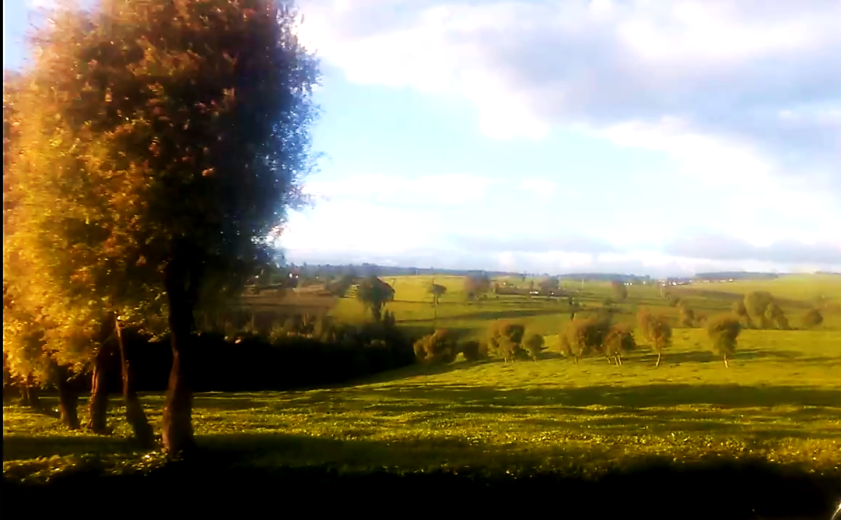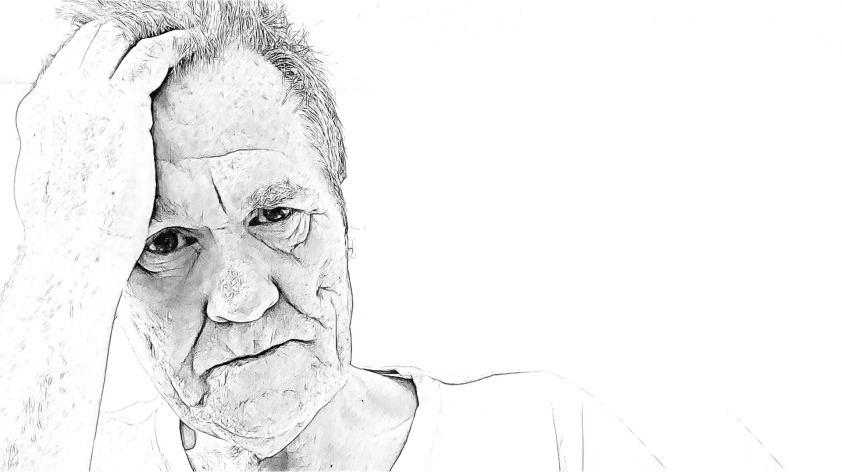I have a very vivid recollection of this guy who was on our bus to Arusha, simply because of the way he carried himself. He was clearly drunk. He ambled his way through the aisle of the bus in staggering stages, engulfing anyone in close proximity with a nauseating strong musk of cheap beer. There was no question about it, he’d been tipping bottles that same morning and not the previous evening, but it was the day before Christmas so maybe he could be forgiven. Maybe not. His clothes wore him, in stead of it being the other way around, his oversize washed-out orange shirt flapping impatiently like a flag in the wind. But apparently he had a very, very important role to play amongst the crew of the bus.
The crews of Kenyan intercity buses seem to grow and shrink in number and complexity every season. There’s the driver obviously, chatty and sometimes vulgar and his conductor who does the heavy work, passing out the refreshments or getting your luggage out of the boot if you alight midway to the bus’ eventual destination. But then last year a new member joined the crew, the second driver. When he can’t find an empty seat, he usually lays a mat in that space between the driver’s and the VIP1 seats, then assumes all kinds of hilarious sleeping postures that beg for a photo shoot.
Then there’s that guy who thinks he’s Rambo’s nephew. He swings on the bus door until you reach Changamwe or the bus company’s out-of-town office where he disappears off into the dark night, never to be seen again. For those buses that cross the border, there is another dude who plays a very pivotal role. He’s the go-to guy if you want to cross the border when you’re not eligible to. You have kids who have no passport or vaccination card? No problem, he’ll get them through no hassle. This was the niche that the hero of our story occupied.
After ten or so rounds to the front of the bus and back, he finally stopped at our row and asked for our passports. I hand him mine, he writes down the details he needs, hands it back. My uncle with whom I was travelling wasn’t carrying his passport but that shouldn’t matter because an agreement reached some years ago by East African countries allows for travel across borders with just your identity card, right?
So our man takes my uncle’s ID card, explains the process he would go through at the border and tells him we’d have to pay five hundred shillings to be issued a certain document that would equate to a visa. But we already knew the whole process because we researched before we left and we knew the fee to be paid wasn’t anywhere close to five hundred, more like three, which meant our guy would pocket the excess.
Now, my uncle thrives in moments like these, mind you, where he would confront people who either don’t do their job right, or require you loosen your purse strings a bit more to “motivate” them, he gives it to them cold and flat. But he’d confessed to me a few minutes ago that his head was throbbing with a headache, so I could understand this time round when he decided not to indulge in his thirst to shame this man and instead handed over the requested sum. Our guy continued forward, carrying out his civic duty. A minute later he came back, almost gouged his entrails on the floor, composed himself and said, “This five hundred should be just enough, but you never know with these border guys. They might ask for more.”
My uncle still said nothing, but this time he chuckled because he understood what was going down here. Cheeky. Very cheeky.
The man then moved on and left us to our thoughts. Ahead of us, occupying almost eight rows of seats was an Indian family apparently on their way to a wedding. When they tired of speaking in Hindi, they switched to Swahili, which they spoke with an accent you’d expect from Swahili or Arab folk living Majengo Guraya or Kibokoni, not an Indian family. I feel compromised and vulnerable.
How I could possibly trust my ears again after this betrayal?
Then I remind myself that this is what travelling is all about. You meet people who surprise you, others who try to make a living off of you because you look innocent. On our way back from Arusha, we didn’t even book a ticket for the return trip in advance. We finished our business midday, then returned to the bus station (or stendi as they call it in TZ ) to find it packed with travellers. We fought our way into the best seats of a bus which took us as far as Moshi. From there we took a manyanga to Holili, then a boda boda motorcycle took us through the border post to Taveta. At Taveta we struck gold as a man with his private car took us to Voi. We sojourned at Voi for a while, packed ourselves full of nyama choma and chapati, then hitched another matatu to Mombasa where we arrived weary and sleepy at midnight. But it was all good. A thrilling Kenyan-savannah-slash-Mount-Mau-and-Kilimanjaro adventure that was the refreshing reload button I had been begging for during the long holiday.
Along the way we met more intriguing and curious people including another drunk who engaged the matatu driver and some of the other passengers in a battle of expletives and a Serengeti Maasai man at the border who was told either he stole his brother’s passport or his hand, because the fingerprints didn’t match.
But then on the other hand, that matatu we took from Moshi was so packed with passengers, my face was constantly being pressed by at least two elbows or armpits for the duration of the trip, and that boda boda trip was so bumpy I wondered if I would ever be whole again after that, and during the final phase I had to sit with my knees hunched over for so long they finally caved and started to hurt, and then it took me two days after we arrived to finally wear off the exhaustion from the travelling.
It’s all part of the experience.
Traveling is refreshing. Traveling is exhausting.
I love it. I hate it.
So anyway, we arrived at the border post, which is nothing like the rickety old building I remember it as. A new state-of-the-art building stands over the ruins of the old one. It even has those metal detectors that would set off alarms if you had too much iron in your blood.
Once inside, we present our passports for verification and visa stamping. There are two sets of counters you have to go through, one with Kenyan customs officers and the other with their Tanzanian counterparts. A gap less than a meter wide separates them. If you stand with your feet just wide enough you can be in Kenya and Tanzania at the same time, essentially you’d be in two places at once. If that’s not cool enough yet, if you stand sideways at the gap and suck in your stomach, you’d neither be in Kenya nor Tanzania. You’d be nowhere. Invisible.
Our hero (hope you haven’t forgotten him already), carrying my uncle’s ID card runs off to another office within the building, comes back with the document we were promised, signed and stamped and sealed. So we believed we were all done but we were wrong.
Our half-sober star makes good on his promise to try and make more money off of us by claiming the mabwanas inside want to be paid more. So uncle offered up to go in and talk to the mabwanas himself, at which point our man jumped and said there would be no need for that.
I imagine my uncle wanted to break into laughter over how thin and poorly-planned this scam was.
“Kenya mambo hayaendi bila pesa, buda.” The man finally said, smiling with those half-dented bronze teeth of his. Nothing happens in Kenya if you don’t tip off.
But should it be that way, though, just because it already is, when it doesn’t really have to be?
Then again someone should have told the poor fool, we weren’t even in Kenya anymore. Should we really carry the worst bits about ourselves everywhere we go?
Oh did I mention I love traveling? I do, I really do.
Now then, won’t you feast your eyes on these photos I took with my modest phone camera during the trip?

Look, look, giraffes!!

I couldn’t get enough of Mount Kilimanjaro. I couldn’t get a decent picture either, unfortunately.

A residential neighbourhood with a killer view of Mount Meru.

The view from Taveta | Mount Kilimanjaro in the background.

Elephants! If you observe them more keenly, you can see them not having a care about you or your flashy car as you cruise through their neighbourhood.

Bumpy ride through the border.

Streets of Arusha

Breathtaking landscape just outside the border post.
